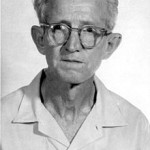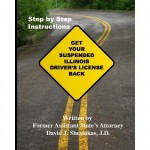“Entrapment” may be a defense to criminal prosecution if a government agent induced a person to commit a crime which the person was otherwise unlikely to commit. Investigation and prosecution of certain crimes can be difficult unless members or agents of law enforcement participate in elements of the prohibited activity. Examples are drug sales, prostitution […]
Direct vs. Circumstantial Evidence: Observation vs. Inference
There are two types of evidence at a trial: direct and circumstantial. One, if believed, directly proves a fact; the other allows a fact to be inferred. In court a trial is held to determine specific facts and the legal implications of those facts. In a criminal trial, the question is if the defendant broke […]
Trayvon Martin, George Zimmerman and the Founders’ Faith in Grand Juries
“I consider trial by jury as the only anchor ever yet imagined by man, by which a government can be held to the principles of its constitution…” Thomas Jefferson The death of Trayvon Martin during an altercation with George Zimmerman prompted calls for a national discussion about race relations that went all the way to […]
The Origin and Meaning of the Miranda Warnings
The Miranda warnings are part of American criminal justice and American popular culture. Where do they come from? What do they mean? Ernesto Miranda was the name of a 23 year old Mexican immigrant. The United States Supreme Court in 1966 announced a constitutional rule of criminal procedure requiring that police must advise a suspect of several […]
Gideon v. Wainwright, 50 Years Later, Did Clarence Gideon Write His Appeal? Part 2
Clarence Earl Gideon had an eighth grade education and a long criminal history. He had been sentenced to prison for the fifth time. Upon his arrival he began to study law for long hours in the prison library. As the story goes, eventually, with a pencil and paper he scratched out an appeal to the […]
Gideon v. Wainwright, 50 Years Later, Did Clarence Gideon Write His Appeal? Part 1
Thanks to television crime dramas and police shows, everyone is familiar with the following: “You have the right to an attorney. If you cannot afford an attorney, one will be provided for you.” The story of those familiar words started with a Bay Harbor, FL poolroom break-in in 1961. The break-in resulted in the arrest, […]
Florida Misdemeanor Law
While less serious than felonies, a Florida misdemeanor arrest and guilty finding leads to criminal records with the FBI and state police. Florida misdemeanors carry a maximum punishment of a fine and up to one year in jail. Crimes for which a person may be punished by more than one year in jail or in […]
Affirmative Defenses to Criminal Charges: Self-Defense, Necessity, Entrapment, Insanity & Intoxication
In some criminal cases the defendant admits committing a criminal act. A legal excuse or justification may exist. This is an affirmative defense. For a person to be guilty of a crime, there are two things that must exist. The person must perform an action that is prohibited by law, and do so with an […]
Driving With a Suspended License in Illinois
The State of Illinois can suspend or revoke a person’s driving privileges for 36 reasons. Over 500,000 people in Illinois are unable to legally drive. Driving[1] with a suspended or revoked license (DWLS) in Illinois[2] is a serious matter. It is a criminal offense. Many people assume getting a ticket for driving while suspended is no different than any […]
Illinois Misdemeanor Law
While the penalties are less serious than felonies, a misdemeanor arrest and guilty finding leads to criminal records with the FBI and state police. Illinois misdemeanors carry a maximum punishment of a fine and incarceration of up to 364 days in jail. Crimes for which a person may be punished by more than one year in jail […]















